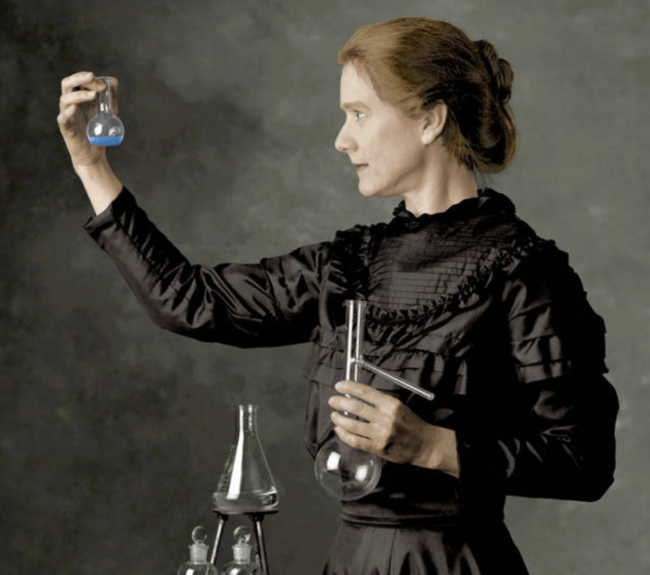Welcome to Women's Wednesday! ♀ Each hump day, we’ll be sharing innovative and influential women who overcame hardships, broke records, shattered glass ceilings, and more. We're paying homage to those who paved the way and changed the world for women. These women act as a reminder of how far we've come and inpsire us to be our best self in remembering we still have a ways to go.
Meet Marie Curie, a Polish and naturalized-French physicist and chemist who conducted pioneering research on radioactivity.


Her efforts with her husband Pierre led to scentific discoveries that are used and practiced today. The Curies worked together investigating radioactivity, building on the work of the German physicist Roentgen and the French physicist Becquerel. In July 1898, the Curies announced the discovery of a new chemical element, polonium. At the end of the year, they announced the discovery of another, radium.
The Curies, along with Becquerel, were awarded the Nobel Prize for Physics in 1903. She was the first woman to win a Nobel Prize, in Physics, and with her later win, in Chemistry, she became the first person and only woman to claim Nobel Prize twice.
The Curie's research was crucial in the development of x-rays in surgery. During World War I, Curie helped to equip ambulances with x-ray equipment, which she herself drove to the front lines. The International Red Cross made her head of its radiological service and she held training courses for medical orderlies and doctors in the new techniques.
Despite her success, Marie continued to face great opposition from male scientists in France, and she never received significant financial benefits from her work. She died July 4, 1934 from leukaemia but the Curies' eldest daughter, Irene continued her legacy and was also a scientist and winner of the Nobel Prize for Chemistry.
Source: BBC




